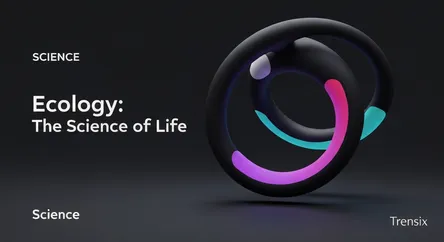Science
Ecology: The Science of Life

Ecology is the study of how organisms interact with each other and their environment. Explore ecosystems, biodiversity, and our place in nature.
What is it?
Ecology is the scientific study of the relationships between living organisms, including humans, and their physical environment. It seeks to understand the vital connections between plants, animals, and the world around them. Ecologists study everything from the microscopic life in soil to the vast, complex interactions within global ecosystems. The field examines concepts like biodiversity, population dynamics, competition between species, and the flow of energy and nutrients through what we call an ecosystem. At its core, ecology investigates the intricate web of life and the systems that sustain it.
Why is it trending?
The term 'ecology' is gaining traction due to a heightened global awareness of environmental issues. Climate change, habitat loss, and pollution are urgent realities, prompting people to understand the science behind them. The rise of conservation movements, eco-conscious consumerism, and discussions about sustainability in media and policy-making have pushed ecology into the mainstream. It provides the fundamental scientific framework needed to address the planet's most pressing environmental challenges, making its principles more relevant and discussed than ever before.
How does it affect people?
Ecology directly impacts human well-being and survival. It underpins crucial services our planet provides, such as clean air and water, crop pollination, and soil fertility—all essential for our food supply and health. Understanding ecological principles helps us manage natural resources sustainably, predict the effects of environmental changes, and control the spread of diseases. It informs everything from agriculture to urban planning, guiding us toward creating a more sustainable and resilient society. By revealing our deep dependence on natural systems, ecology highlights the importance of environmental stewardship for our own future.